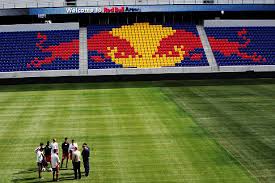By Ben Nicholson
October 10 – The New York Red Bulls have been granted a hearing with the Supreme Court of New Jersey to settle its tax dispute with the Town of Harrison. The club is seeking reimbursement for tax paid on its Red Bull Arena, claiming exemption is statutorily permitted.
Red Bulls tax row gets wings as it heads for Supreme Court

